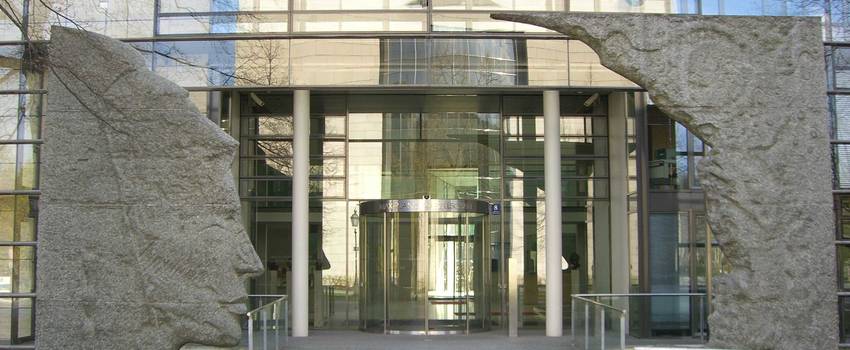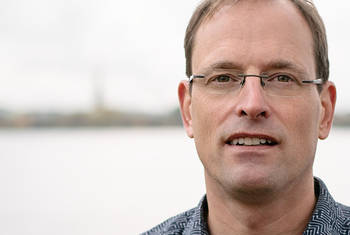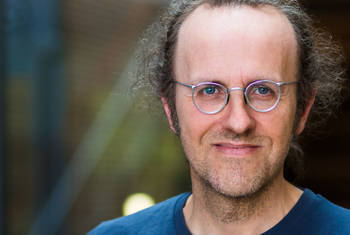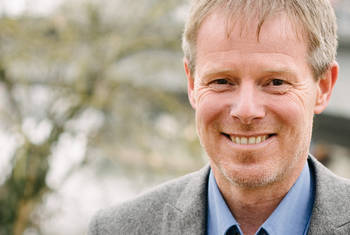Markus Reichstein How Can Artificial Intelligence Enhance Our Understanding of the Earth System?
Managing Director since 2018 of the Max-Planck-Institute for Biogeochemistry, Markus Reichstein is also Director of its Department of Biogeochemical Integration. Additionally, Reichstein is Founding Joint Director of the Michael-Stifel-Center Jena for Data driven and Simulation Science at Friedrich-Schiller-University. His main research interests include biogeochemical soil interactions, data mining and dynamic global ecosystem modeling. Since 2014, Reichstein has been a member of the Climate Panel for the German State of Thuringia. A previous winner Microsoft’s Jim Gray seed award for excellence in e-science, Reichstein was the 2020 recipient of Germany’s most generously endowed research grant, the German Research Foundation’s (DRG) Gottfried Wilhelm Leibniz Prize.
Area of Research
Earth System Analysis
since 2012
since 2015
Founding Joint Director
Friedrich Schiller University Jena (Friedrich-Schiller-Universität Jena)
Michael-Stifel-Center Jena for Data-driven and Simulation Science
since 2014
Professor for Global Geoecology
Friedrich Schiller University Jena (Friedrich-Schiller-Universität Jena)
2006-2012
Max Planck Research Group Leader
Max Planck Society (more details)
Biogeochemical Model-Data-Integration Group
2001-2003
Graduate Research Assistant
University of Bayreuth (Universität Bayreuth)
Terrestrial Process Integration Group at Department of Plant Ecology
2001-2001
Ph.D.
University of Bayreuth (Universität Bayreuth)
School of Biology, Geoscience and Chemistry (summa cum laude)
1998-1998
Diploma in Landscape Ecology
University of Münster (Westfälische Wilhelms-Universität Münster)
Institut für Landschaftsökologie
- German Committee Future Earth (since 2019)
- Thuringian State Science Committee (since 2019)
- DFG-Future-Earth AG (since 2017)
- American Geophysical Union (since 2005)
- European Geosciences Union (since 2003)
Prizes
- AGU Piers J. Sellers Mid-Career Award (2018)
- ISI highly cited researcher in three fields: Agricultural Sciences, Geosciences, Environmental Sciences (2014-2017)
Fellowships
- INTERMODE - Marie-Curie IntraEuropean fellowship (2005)
- Volkswagen Stiftung: Herrenhausen Conference Extreme Events – Building Climate Resilient Societies
 © Maximilian Dörrbecker
© Maximilian Dörrbecker
Max Planck Society
"The Max Planck Society is Germany's most successful research organization. Since its establishment in 1948, no fewer than 18 Nobel laureates have emerged from the ranks of its scientists, putting it on a par with the best and most prestigious research institutions worldwide. The more than 15,000 publications each year in internationally renowned scientific journals are proof of the outstanding research work conducted at Max Planck Institutes – and many of those articles are among the most-cited publications in the relevant field." (Source)
Institute
Max Planck Institute for Biogeochemistry
"The Max Planck Institute for Biogeochemistry in Jena conducts research into global material cycles and the associated chemical and physical processes. Carbon, oxygen, hydrogen and nitrogen are four elements that are crucial to life whose compounds are transported by plants, animals and microorganisms and distributed via the air and water. The scientists in Jena seek to gain a better understanding of the complex interaction between the organisms in the soil and the greenhouse gases in the atmosphere, as well as the influence of humans on these natural processes. How do ecosystems react to various climate conditions, land-use practice and species diversity? To this effect, scientists at the Institute compare historical data with current observations from field experiments and measurement campaigns in order to draw conclusions on the future adaptability of organisms. They also work closely with the Max Planck Institutes for Meteorology in Hamburg and Chemistry in Mainz." (Source)
Map
The Earth system is unique and highly complex, presenting a daunting challenge to researchers that seek to model and understand it. Noting that existing approaches seem unable to arrive at reliable predictions for the implications of CO2 emissions, in this video, MARKUS REICHSTEIN proposes that new methodologies incorporating machine learning and artificial intelligence be brought to bear on the problem. Identifying notable parallels between conceptual challenges in the Earth system and successful applications of machine learning, Reichstein is careful to foreground problematic aspects of AI, arguing that the best methodological approach may well be hybrid, involving more traditional modeling alongside the data centered approach.
LT Video Publication DOI: https://doi.org/10.21036/LTPUB10819
Deep Learning and Process Understanding for Data-Driven Earth System Science
- Markus Reichstein, Gustau Camps-Valls, Bjorn Stevens, Martin Jung, Joachim Denzler and Nuno Carvalhais
- Nature
- Published in 2019









